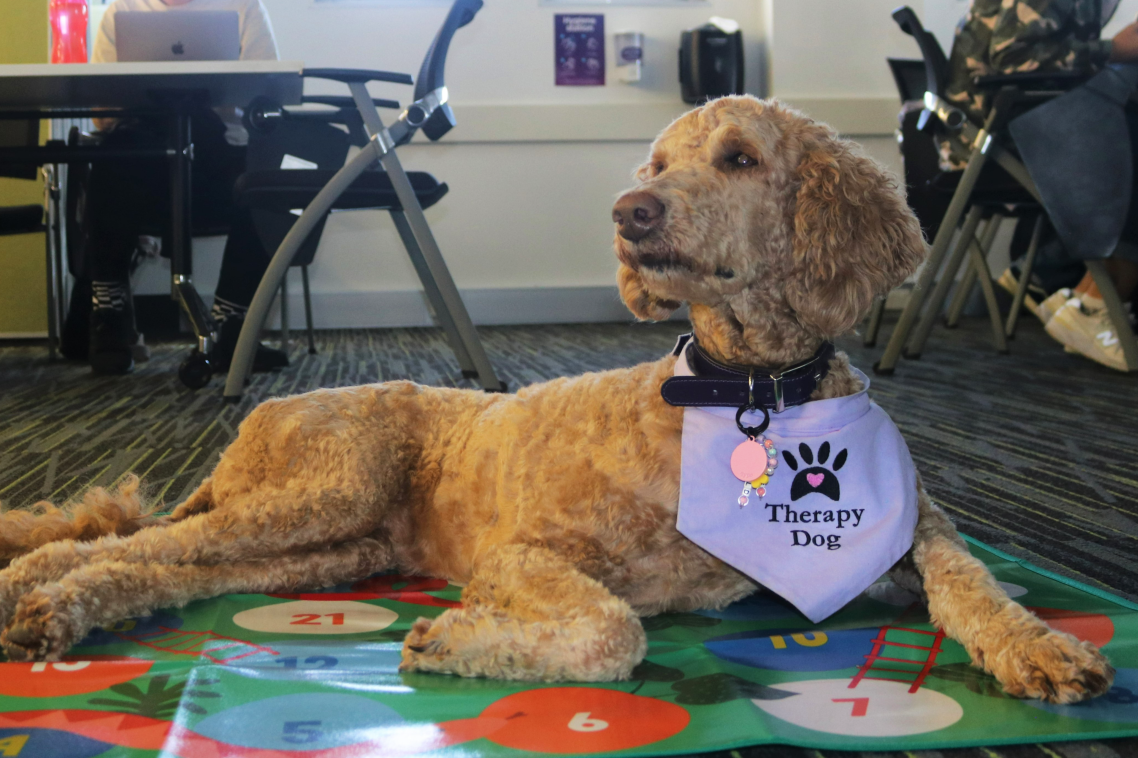Therapy dog Elsa helping students let stress go

The mental health benefits of having therapy dogs at lectures and tutorials is being tested at The University of Queensland
Dr Jess Hill from UQ’s School of Health and Rehabilitation Sciences is conducting the research with the help of a trained therapy dog, a labradoodle named Elsa.
“There is a lot of interest in the benefits of animal-assisted learning with primary and secondary students, but there’s a gap in the higher education setting,” Dr Hill said.
“The study aims to explore university students’ experiences to understand whether canine-assisted learning can ease stress, anxiety and motivation levels.
“Elsa is joining me as I teach my tutorials, and students will be able to actively engage with her throughout the lesson.
“Having Elsa in the room may help build rapport between me and students, so that they feel more confident to ask for help if they need it,” she said.
University students are five times more likely than the general population to experience poor mental health.
This is caused by life demands and developmental transitions, such as increased independence after high school, gaining employment, and moving out of home.
Dr Hill said stress could impact students’ health and wellbeing and lead to poor academic performance and higher withdrawal rates.
“University is a big change, and it can sometimes be quite overwhelming for young people,” Dr Hill said.
“There are a number of fantastic mental health support services provided by universities, but students usually have to initiate the contact.
“We have found there is often reluctance to seek out these supports due to the fear of being stigmatised,” she said.
“This study breaks that barrier by bringing support, through Elsa, directly to the students, which may be able to improve their wellbeing and motivation.”
Elsa will be attending Dr Hill’s tutorials and students will complete a survey about their experiences as part of the study.
The results will be available at the end of the year.
Media: Dr Jess Hill, jessica.hill@uq.edu.au, +61 (0)423 506 754; UQ Communications, Kirsten O'Leary, kirsten.oleary@uq.edu.au, +61 (0) 412 307 594
Related articles

UQ ranked second nationally in AFR Best Universities Ranking

UQ experts recognised for national impact
Media contact
UQ Communications
communications@uq.edu.au
+61 429 056 139
